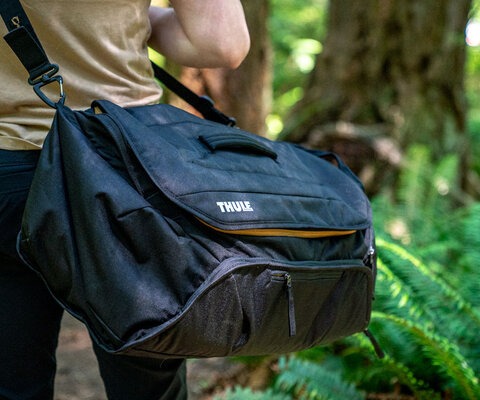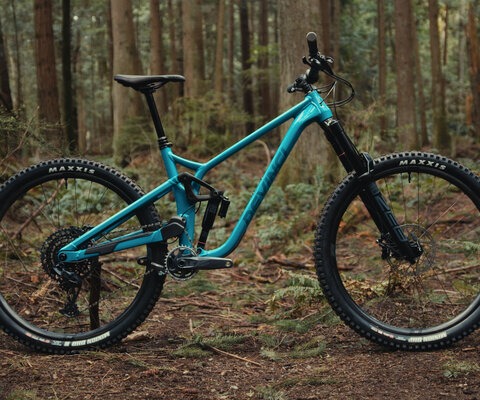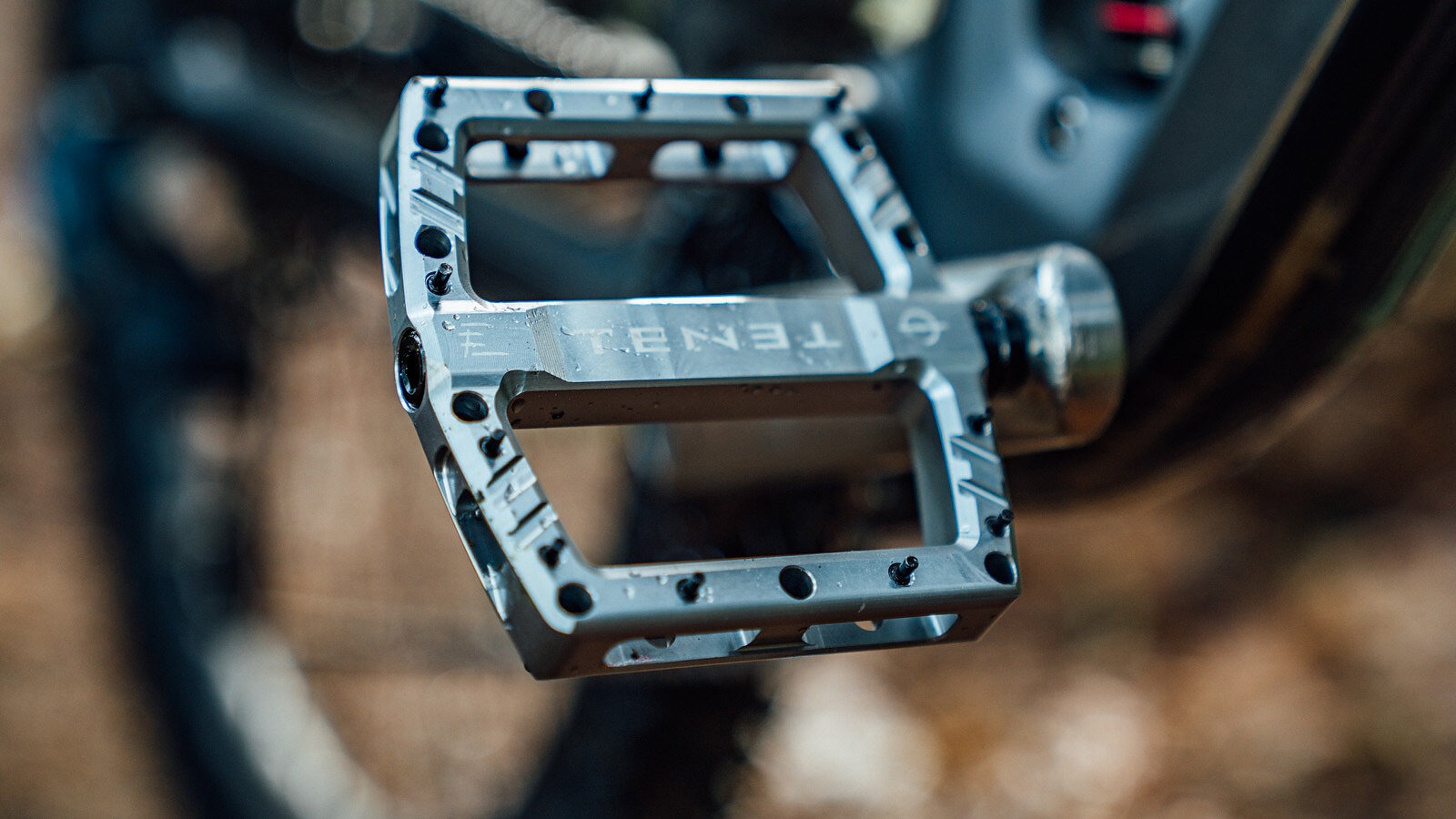
Tenet Omen V2 Pedal Review
Words by Skylar Hinkley | Photos by Cierra Coppock
Iron Maiden frontman Bruce Dickinson once wrote that while recording the 1982 heavy metal album “The Number of the Beast,” the band’s producer collided with a minibus full of nuns en route to the studio one night. The cost of the damage to his Range Rover amounted to exactly £666.66.
Though the incident spooked the producer, the band embraced it as an eerie harbinger of their iconic album. Much like this serendipitous omen in rock history, mountain bikers know that the best rides come from embracing what scares us and trusting that good things lie beyond the darkness.
Embodying this philosophy, industry vets Tyler Deschaine and Luther Beale, have followed the signs leading to the creation of the hit-making, two-man band of a company known as Tenet Components. No longer standing behind the monolith of the big bike brands they once served, they have embarked on a soulful journey of making small but mighty products and humbly serving riders in the process.
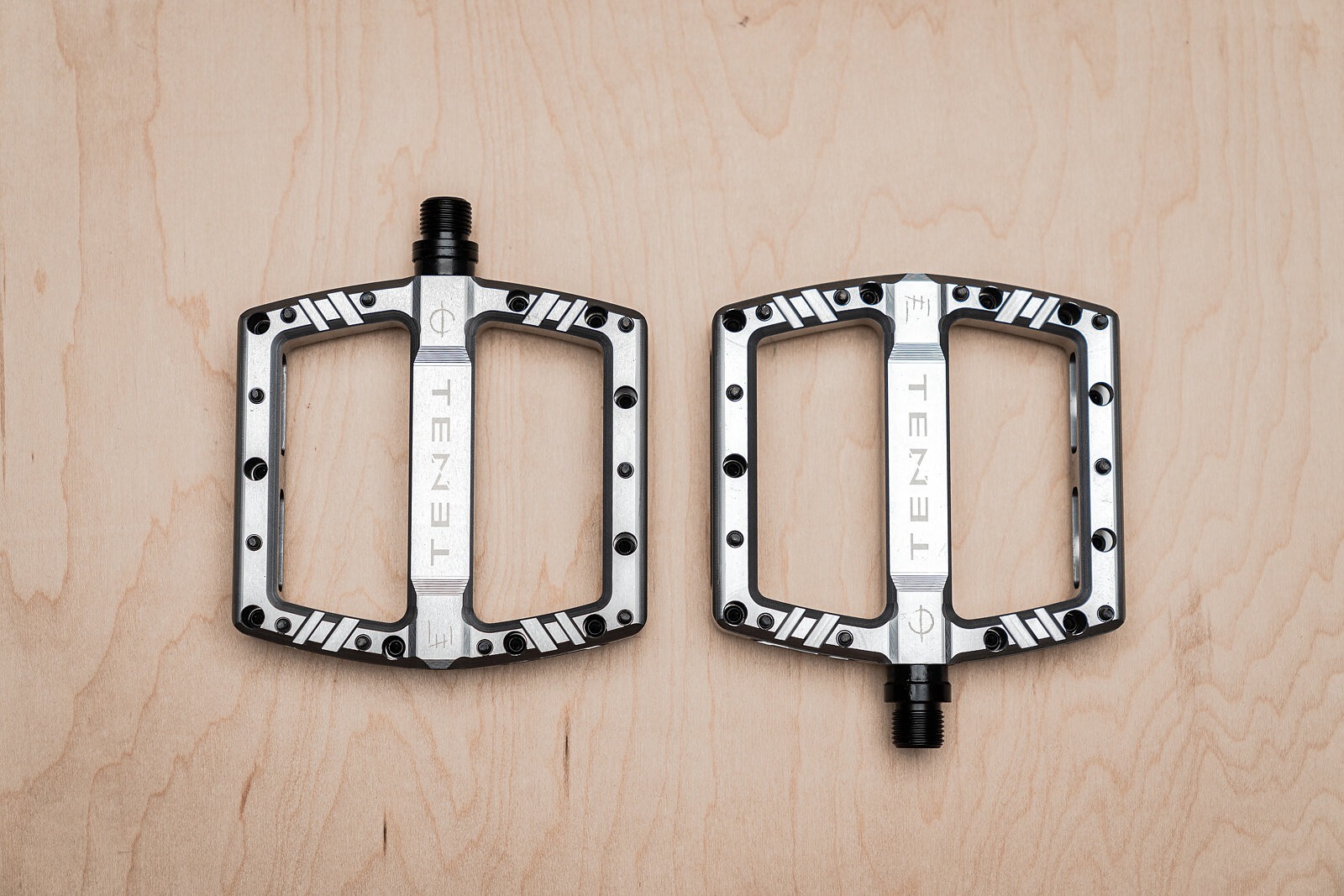
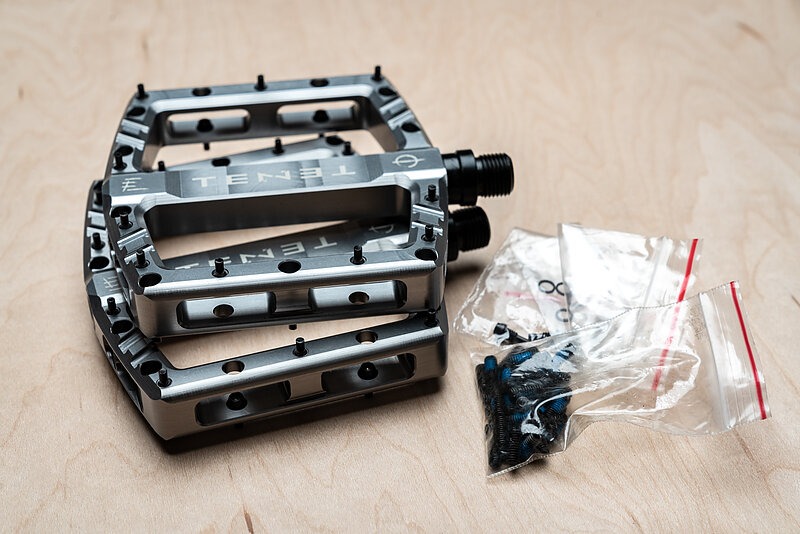
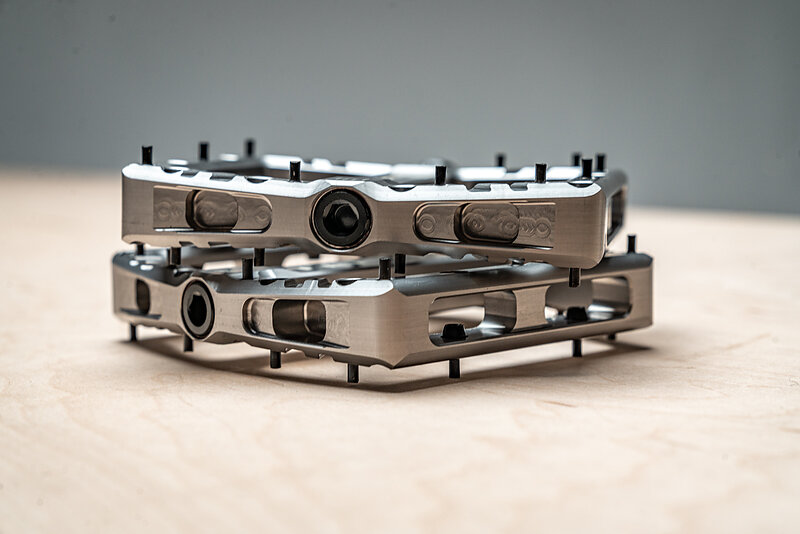
“If something does happen to a product you ride of ours, or someone has a question about it, they’re going to talk to either me or Tyler,” Beale said. “We know each part of [our products] very intimately, and we really care about it.”
Designed in-house by Beale, the Omen V2 pedals are a gleaming example of what this brand is capable of. In person, they are a sight to behold. The quality of the manufacturing and the feel of the pedal in hand is awe-inspiring. Sporting the same size, pin configuration, and internals as their popular Occult V2, what makes the Omen special is how they are made.
Crafted by Lichen Precision in Poulsbo, Washington, these pedals are a product of meticulous, homegrown craftsmanship. This local production not only supports regional manufacturing but also ensures a level of control that’s often lost in mass-produced gear. By starting with a solid block of 6061-T6 aluminum, the Omen pedals are left with a beautiful raw finish before being anodized and laser etched. When examined closely, you can see the precision markings of the tool used in the CNC process. This lends a look and feel to the final product that bolsters the pedal’s industrial design.
On the trail, the sharp lines and bold angles of the pedal’s aesthetic match the mettle they inspire. I found myself staying confident and connected through rough sections that would often bounce my foot loose on other pedals. At times, the grip could even be more than what I wanted, and I would have trouble making minor adjustments. Luckily, the remedy for this was included in the box.
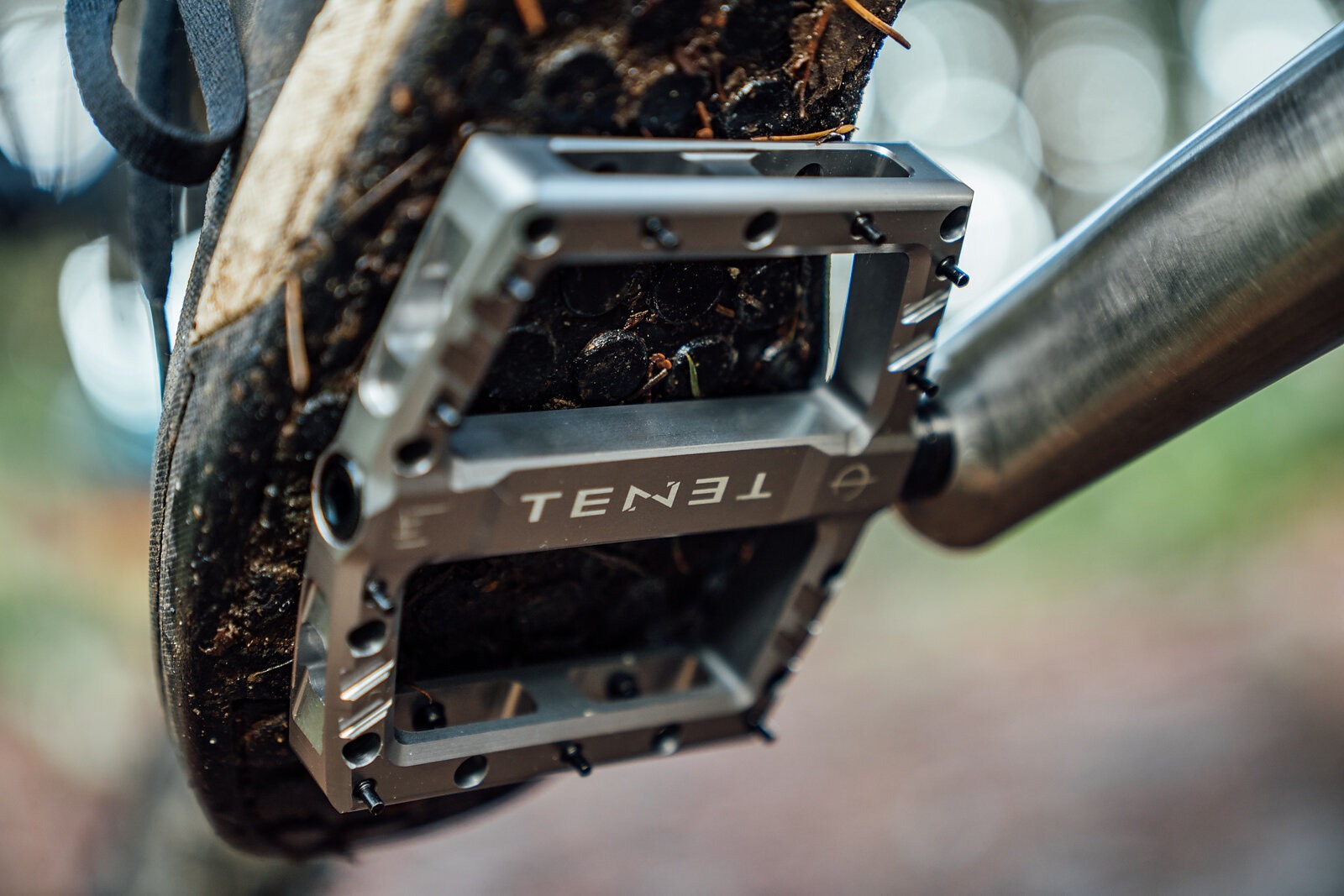
Tenet ships the Omen pedals with a set of pins and grub screws. The latter has a larger contact area and can be set up to protrude at any height. This allows complete customization of the level of grip. You can have one side of the pedal setup super grippy for technical sections and the other side set up less grippy for jump trails or general one-footed shenanigans. Tenet team rider Talus Turk even had a combination of pins and grub screws on the same side for the bike he road at this year’s Rampage event in Virgin, Utah.
Building a pedal capable of handling professional-level freeriding isn’t easy. I have heard that the International Organization for Standardization (ISO), the industry standard for manufacturers, sets a floor, not a ceiling, for the products on the market. Their standards for mountain bike pedals test for forces far below the demands of modern riding. That’s why Tenet chose to meet the EFBE TRI-TEST Gravity standard—the ultimate measure for mountain bike frames and components.
“When you think about it … all your weight is on your pedals. It’s the one thing connecting you to your bike,” Beale said. “The spindle is insane. It’s limited at the crankarm by this old standard from the ‘40s and has to handle something now that no one could have imagined.”
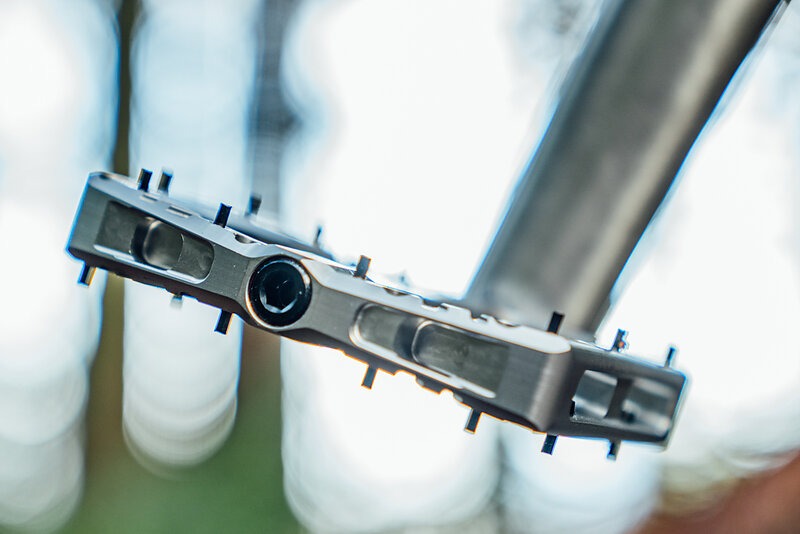
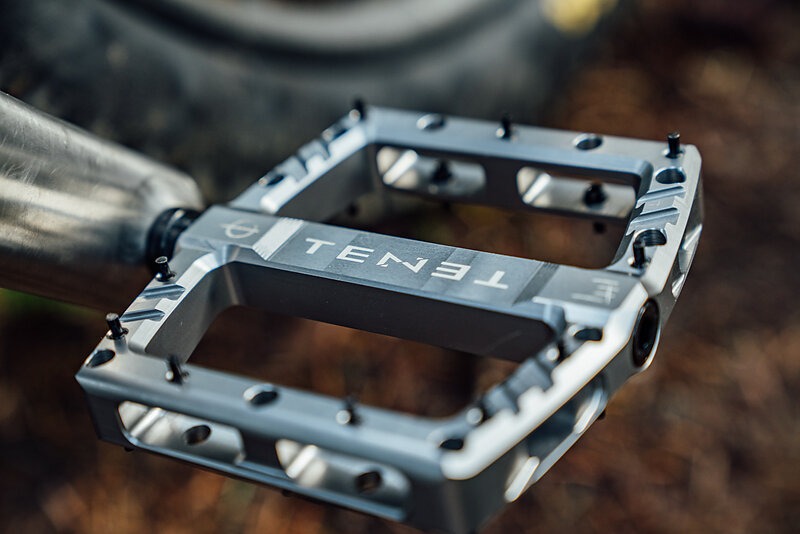
Having been disappointed with the performance of off-the-shelf options for spindles and bearings, Tenet decided to revamp their internals and make them match the level of riding that their team was capable of. During this process, they realized they might have designed the strongest pedal on the market.
“I’m not going to say that I’ve run more FEA than anyone else in the industry, but relative to how many pedals we’ve sold, I’d bet that it has more Finite Element Analysis going on than anyone else's pedal,” Beale said.
Tenet offers a pedal refresh program to add further value to these top-tier pedals. Within the first year, you can return your pedals and have them rebuilt with fresh parts for free. After a year, it’s only $30, which is cheaper than many other companies’ DIY rebuild kits.
The Tenet Omen V2 pedals, much like Iron Maiden’s fortuitous omen, are a sign of great things to come for mountain bikers. They combine functionality, durability, and style in a package that promises to help you carve your path. With their roots in local craftsmanship and a design honed for the rigors of the trail, these pedals are not just a piece of equipment—they’re a testament to the fusion of passion, precision, and performance.

